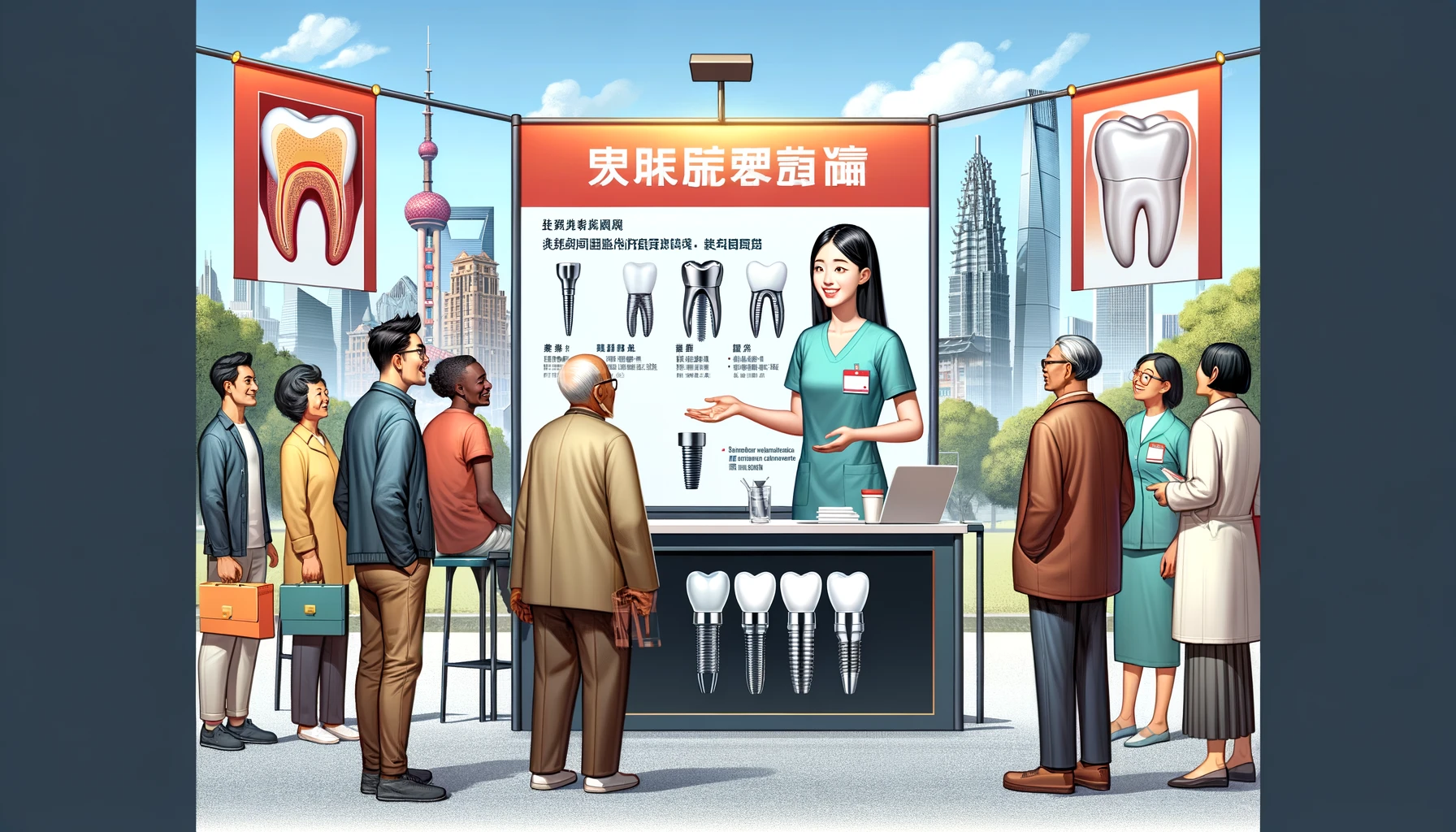As we age, maintaining our health becomes increasingly important, and dental care plays a crucial role in overall well-being. However, navigating the complexities of Medicare coverage can be daunting, especially when it comes to dental services. Nearly two out of three seniors on Medicare lack dental coverage, leaving them vulnerable to significant health and financial consequences. If you are one of the 37 million Americans over 65, understanding your options for dental care under Medicare is essential for protecting your smile and your savings.
In this comprehensive guide, we will explore the extent of dental coverage provided by Medicare, the differences between Original Medicare and Medicare Advantage plans, alternative dental insurance options available to seniors, and the importance of maintaining good oral health. By the end of this article, you will have a clearer understanding of how to navigate your dental care options in 2024.
What Dental Services Does Original Medicare Cover?
Original Medicare, which consists of Part A (hospital insurance) and Part B (medical insurance), generally does not cover routine dental services. This includes essential treatments such as:
- Cleanings
- Fillings
- Extractions
- Dentures
The coverage provided by Medicare is quite limited and typically only applies in emergency situations related to other covered medical procedures. For example, Medicare Part A may cover certain dental services if you are hospitalized for a related condition. Here are some instances where dental services might be covered:
| Service | Description |
|---|---|
| Dental exam before surgery | Required before procedures like kidney transplants or heart valve replacements. |
| Jaw reconstruction after an accident | Covered if performed during a hospital stay due to an injury. |
| Tooth extractions necessary for radiation treatment | Covered if required as part of cancer treatment. |
However, routine dental care needed before or after these procedures—such as fillings or crowns—is not covered by Medicare. According to the American Dental Association, nearly half of all Medicare beneficiaries (47%) lack any form of dental insurance, leading to steep out-of-pocket costs for essential treatments. Alarmingly, a quarter of seniors have not seen a dentist in the past five years, and 19% currently have untreated cavities.
Can Medicare Advantage Plans Provide Dental Coverage?
Medicare Advantage plans (Part C) offer an alternative option for seniors seeking dental coverage. These plans are sold by private insurers and include benefits from both Parts A and B, often bundling additional services like vision and prescription drugs.
Key Features of Medicare Advantage Dental Coverage
While some Medicare Advantage plans do offer dental benefits, it’s essential to understand that not all plans provide comprehensive coverage. Here are some critical differences to consider:
| Feature | Details |
|---|---|
| Benefit limits | Annual maximums typically range from $500 to $2,000 depending on the plan. |
| Covered services | Some plans may only cover basic cleanings and x-rays, while others include fillings, crowns, root canals, and dentures. |
| Coinsurance and copays | Most plans require cost-sharing ranging from 20% to 50% for non-preventive services. |
| Network restrictions | Many plans require you to use dentists within their network or face higher out-of-pocket costs. |
Before enrolling in a Medicare Advantage plan for dental coverage, it is crucial to carefully review the plan’s summary of benefits and provider network. You can compare available plans in your area using the Medicare Plan Finder.
As of 2024, approximately 94% of individual Medicare Advantage plans provide some form of dental coverage, but only about 86% cover both preventive and more extensive dental benefits. The average additional premium for these benefits varies widely; however, it is essential to weigh these costs against potential out-of-pocket expenses for necessary treatments.
What Other Dental Insurance Options Exist for Seniors on Medicare?
If you find that neither Original Medicare nor your chosen Medicare Advantage plan provides sufficient dental coverage, several alternative options can help you access affordable dental care:
1. Standalone Dental Insurance Plans
Many major health insurers offer standalone dental insurance plans that can complement your existing coverage:
Cost: Typically ranges from $20 to $50+ per month, depending on the level of coverage.
Coverage: Most plans cover 100% of preventive services (e.g., cleanings and x-rays) and 50-80% of treatments after a deductible.
Waiting Periods: Some plans may impose waiting periods of 6-12 months for major procedures.
Example Plan
| Insurance Provider | Monthly Premium | Deductible | Preventive Coverage | Fillings Coverage | Crowns Coverage |
|---|---|---|---|---|---|
| Delta Dental Silver Plan | $35 | $50 | 100% | 80% | 50% |
2. Dental Savings Plans
Also known as dental discount plans, these programs provide members with discounts on various dental services:
Cost: Members pay an annual fee ranging from $100 to $200.
Discounts: Members receive discounts ranging from 10% to 60% off most dental services, with no annual caps or waiting periods.
Limitations: These plans do not cover costly procedures but are ideal for those needing primarily preventive care.
Example Plan
| Provider | Annual Fee | Discount Range |
|---|---|---|
| DentalPlans.com Care 500 | $100 | 20-50% off preventive care |
3. Medicaid Dental Coverage
Some state Medicaid programs provide limited dental benefits for low-income seniors:
Eligibility and coverage vary widely by state; refer to Medicaid Adult Dental Benefits for specific information.
Typically covers emergency treatments and may include preventive services.
Example Plan
In California (Medi-Cal), Medicaid covers exams, cleanings, fillings, crowns, root canals, dentures with minimal copays (often around $1) and no annual limit on services.
4. Low-Cost Dental Clinics and Dental Schools
Community health centers and faith-based clinics often offer free or discounted care:
Services are frequently provided by students under the supervision of licensed dentists.
Availability may be limited based on income or age requirements.
Example Program
The Rutgers School of Dental Medicine in Newark offers discounted general dentistry programs specifically for seniors as well as specialized programs for veterans.
Why Your Dental Health Matters as You Age
Neglecting your oral health due to cost concerns today can lead to larger medical bills and poorer quality of life down the road. Over half of seniors suffer from severe gum disease—a condition linked to higher risks of heart disease, stroke, diabetes, and Alzheimer’s disease.
Impact on Overall Health
Dental problems can significantly affect nutrition, mental health, and social well-being:
A quarter of older adults avoid smiling due to their teeth’s condition.
Those with severe tooth loss are less likely to maintain a balanced diet.
Oral pain is a leading reason for emergency room visits among seniors.
Investing in preventive measures is crucial for maintaining good oral health as you age. Here are some steps you can take:
Prioritize a dental plan that covers two annual cleanings and sets of x-rays to catch problems early.
Brush twice daily with fluoride toothpaste and floss at least once a day.
If extensive work is needed, get a pre-treatment estimate; consider spacing out procedures.
Ask your dentist about lower-cost alternatives (e.g., silver vs. composite fillings).
Explore free or discounted care at local dental schools or community clinics.
Use a dental savings plan for preventive visits while considering an individual plan for more costly needs.
Additionally, advocate for expanded dental benefits under Medicare by contacting your congressional representatives. Several bills have been introduced aiming to add a dental coverage option to Medicare Part B but have yet to pass due to funding disagreements.
The Bottom Line
If you rely on Original Medicare for your health coverage, don’t assume your dental needs are adequately addressed. While some Medicare Advantage plans offer limited benefits, these often come with additional premiums and restrictions that may not meet your needs.
Review your current coverage alongside your dental health needs to determine if a standalone plan or discount option works best for your budget. The most important takeaway is that continuing regular dental visits is crucial—skipping care now will only lead to more painful and expensive problems later on.
Navigating Medicare’s dental coverage may be complex; however, investing in your oral health is essential as you age. Share this article with others facing similar issues and comment with your experiences or advice below! Together we can advocate for a healthcare system that values the dental needs of seniors.















